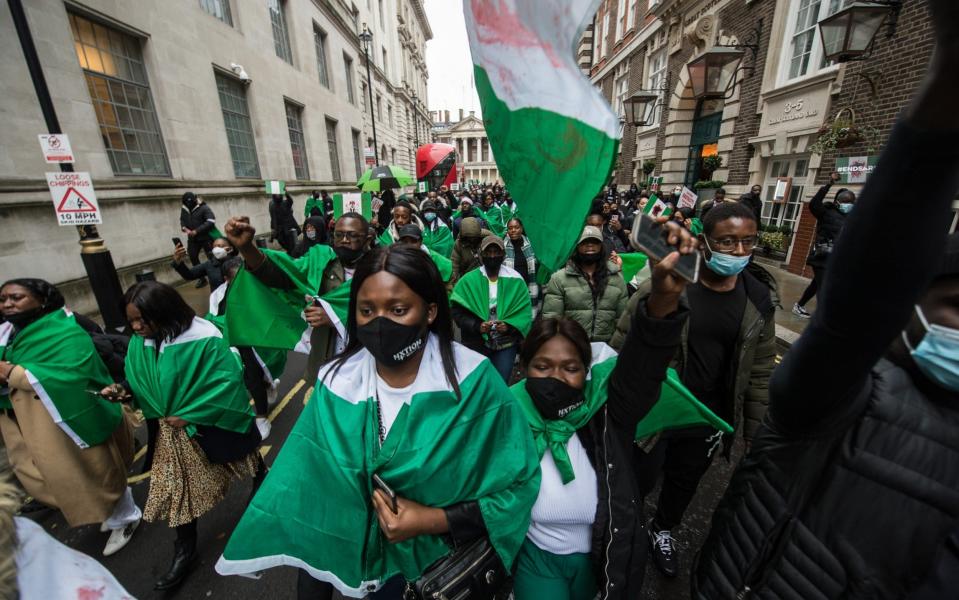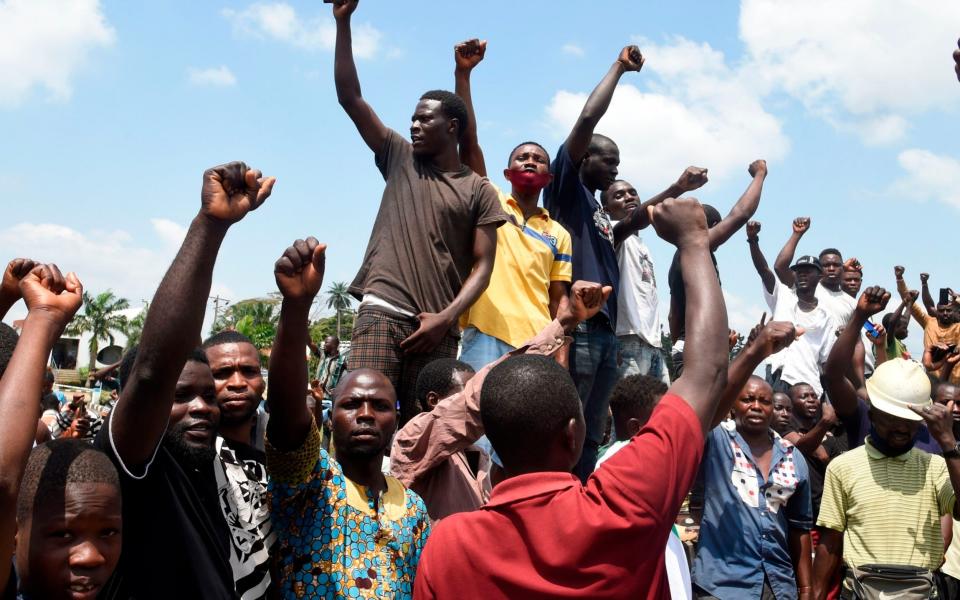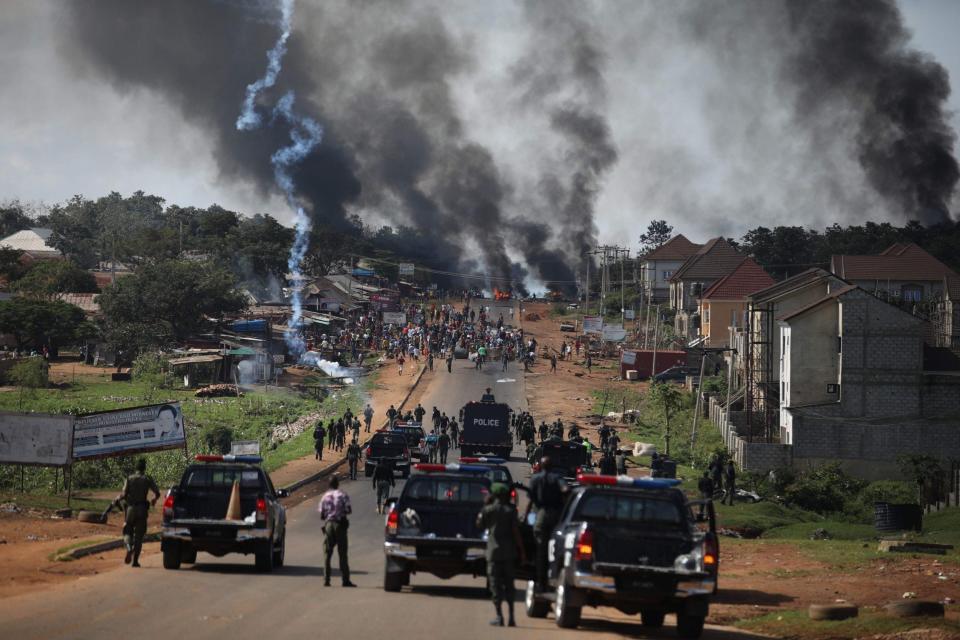Nigeria protests: How Lagos influencers triggered a global movement to end police brutality

Nigerian celebrities and social media stars who helped trigger a wave of global condemnation of their country's police force have turned their ire on the embattled government and president.
Nigeria has been rocked by street protests against a brutal police unit accused of torture and extrajudicial killings.
News of a 'massacre' of demonstrators in Lagos last week became a global cause célèbre, condemned by the likes of Rhianna and Anthony Joshua, after Nigeria's own stars used their fame to spread the word.
On Tuesday evening, about 20 members of the security forces sprayed bullets into hundreds of unarmed protesters in Nigeria’s commercial capital.
The government has denied that anyone died at Lekki. But, Amnesty International says, at least 12 people were killed, and hundreds were severely injured.
Extrajudicial killings by security forces or crackdowns on protests are not uncommon in Nigeria. But they are often brushed under the carpet and barely register in the international media.
THEYRE KILLING OUR PEOPLEEEEEEEEE pic.twitter.com/1iGmoTIllf
— Davido (@davido) October 20, 2020
But something was different at Lekki. The shooting did not happen in the country’s remote hinterland, where internet access is limited. Instead, the shots were fired in Lagos, Nigeria’s hyperconnected metropolis of 20 million.
Viral videos of protestors singing lines of the national anthem to the crackle of gunfire and pictures of bodies and bloodied green and white Nigerian flags have thrown President Muhammadu Buhari’s government into a PR crisis.

Nigerian music stars use their social media platforms to spread the word
One of the key reasons behind the social media firestorm is the influence and followings gathered by Nigerian music stars, who have used their platform to support the protests.
Lagos is Africa’s cultural powerhouse. It is the home of Afrobeats - a unique sound emanating from the vibrant, colourful and fast-paced city. Afrobeats is arguably Nigeria’s most significant export other than crude oil, and it has spread from the UK to South Korea and Finland.
Top Nigerian musicians have acquired tens of millions of followers on social media and easily sell out London’s O2 Arena.
The protesters at Lekki belonged to the #EndSars protest movement, which was started in 2017 as an online campaign and calls for the disbandment of the Special Anti-Robbery Squad (Sars) - a police unit accused of rampant brutality and extortion.
This month, young Nigerians moved the protest to the streets and celebrities joined them, helping the movement garner national and global attention. This meant the shooting and its bloody aftermath was streamed or shared around the world instantly on Instagram, Twitter and Facebook.
One of the celebrities at the toll gate was DJ Switch, a popular DJ. Her Instagram live stream of the shooting reached more than 140,000 people.
A post shared by Switch (@djswitch_) on Oct 13, 2020 at 2:17am PDT
#ENDSARS 🇳🇬 pic.twitter.com/59lrs8JnDA
— Rihanna (@rihanna) October 20, 2020
Within minutes, her stream was amplified by top stars. Lagos’ most influential musicians, like Burna Boy, Wizkid and Davido, who have a combined Twitter and Instagram following of more than 55m, have shared other photos, videos and their own reactions.
But the real driving force of the protests has been Nigeria’s massive youth population, who have been the main target of the now-disbanded Sars unit.
The country of more than 200m has a median age of 18. And the youth of the country did not grow up under the military regimes of the 1990s.
Instead, the social media-savvy generation feels a connection to similar global events in Hong Kong, and Black Lives Matter protests in the US.
The #EndSars movement is largely leaderless, a strategy that has made it difficult for the government to infiltrate.

“It’s the organic nature of the movement that makes it stand out,” said Folarin Falana, a 29-year-old rapper and lawyer known as ‘Falz’ who has been at the forefront of the protests.
“The way it spread quickly across the world, it was beautiful to see,” Mr Falana, who has 10m followers on Instagram and Twitter told The Telegraph.
“We found a sense of duty; we found a sense of oneness, it’s a common emotion we shared because everyone is angry about this issue.”
For him, the movement has been sustained with rarely-seen energy because it’s about more than police brutality. “It started being about everything, everyone is angry about the general state of things, and that fueled people’s anger. ”
“We found our voice.”

